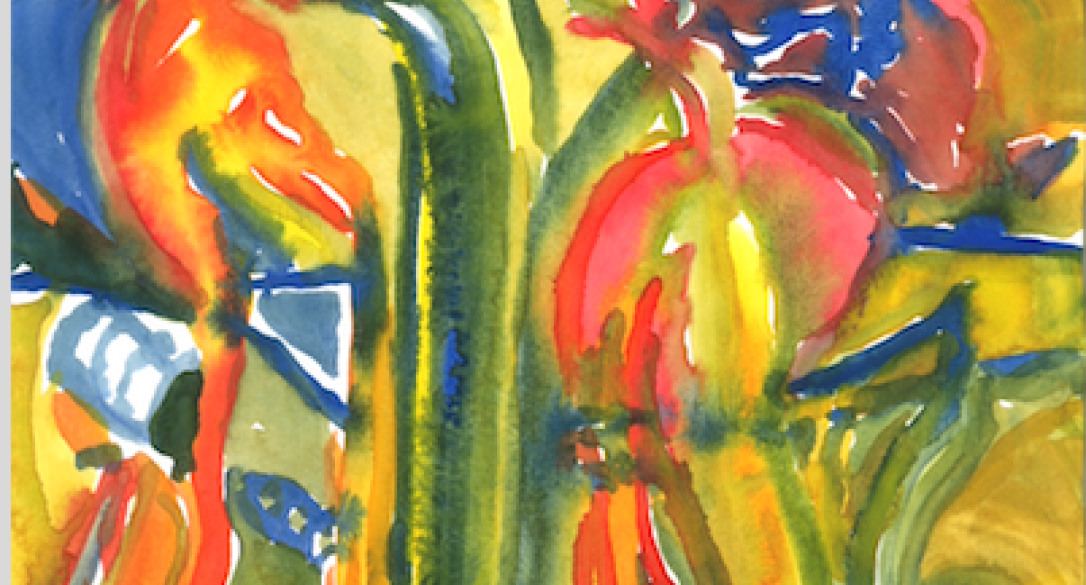
"Orange Lily" by Jane Kippenhan from The Art of Alzheimer's exhibit
#2 Examine your need to be "right"
Living in our polarized scientific society where it's common to hear arguments about who is right this lesson was hard to learn. Yet in dementia care one not only finds out immediately that it's counterproductive to be right but it's also not a winning strategy for establishing a therapeutic bond. The object of dementia caregiving is to become an ally and the highest priority is to establish trust because as dementia erodes judgement it is critical to know someone trustworthy to provide guidance. The reflex to be right is insidious and it pops up in language subconsciously. For example it's reflexive to say: "you're going the wrong way" which implies that you know the "right" way or "No, you didn't x" which means you hold the factual truth regarding x. Effectively supporting dementia requires a paradigm shift in communication and adopting that shift enriches my daily life and social contacts.
The award winning program, Timeslips, in the video below, is based on the importance of throwing out the dominant right/wrong or linear communication model when supporting people experiencing dementia. Right/wrong communication risks repeatedly telling people they are wrong which, in itself, is damaging to confidence. It may indeed lead to a faster progression of the disease. Viewing life as a right way wrong way journey misses the experience of joy, creates conflict and judgement, and hampers our creative imagination. Fortunately there's an alternative form of communication that uses positive responses and validates the input of all.
Certainly we've all had experiences with our friends, coworkers and family where we thought we owned the facts--we thought we were "right." If we reflect about those moments we find a space there. Most commonly and, perhaps reflexively, we use that space to decide to react, disagree, or anxiously offer our own thesis. I began to wonder can we also use that space to ask ourselves:
Do I have a higher goal for this interaction such as love or friendship?
Will I gain anything by suspending my disbelief and listening to another point of view?
How important will it be tomorrow to assert that I'm right today?
Supposing I am "right" and must assert that can I then be generous enough to make room for the other to be right too? Can my response allow room for multiple truths?
In my daily life I find that practicing the compassion and restraint I use as a caregiver when I feel I'm "right" but know it's not my highest goal has helped me to become less reactive toward difference in general and to regard it with greater curiosity. More often now, I find that space I used to use to disagree and ask myself those four questions instead. In turn, that promotes better team work, a wider range of friends and a broader view of life. Granted, reacting with compassion toward illness is much easier than bringing compassion to someone on the opposite side of our political views yet compassion works. It's a powerful tool that's effective within us and in the world around. Being more compassionate and interested in the opposing forces in my own personality, for instance, has helped me become a better friend to myself which, in turn, helps me to be a better friend in my social life. I find I have everything to gain by suspending my disbelief and listening to another point of view.

